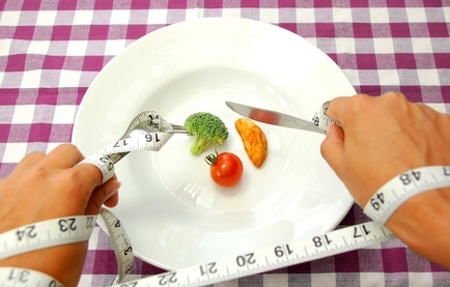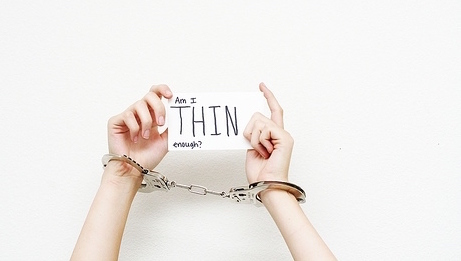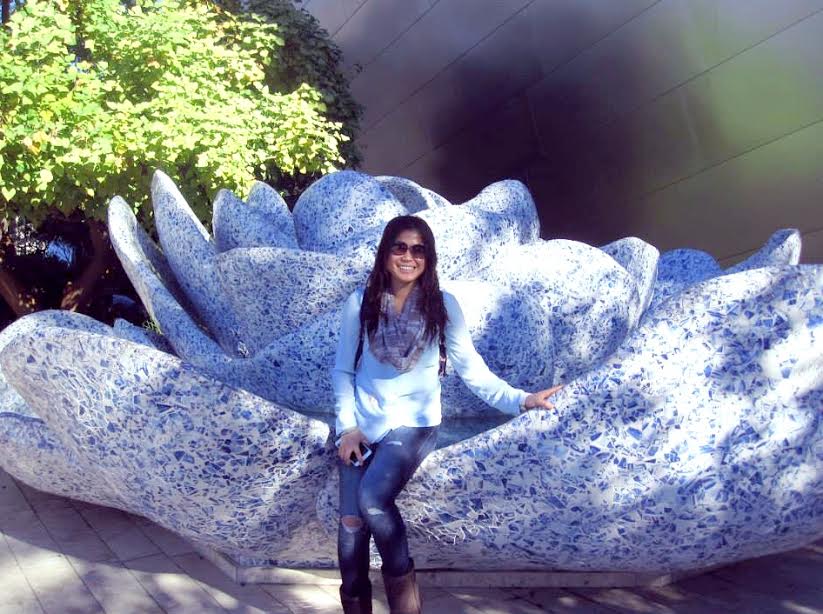My friends and family regard me as the healthiest person they know. They know me as the “health nut” who says no to free ice cream, voluntarily chooses a bowl of fruit over cake for dessert and has not had In-N-Out for five years. But what they don’t know is that only four years ago, I was battling the worst stage of my anorexia and was close to dying.
What began as a simple, harmless diet at the end of freshman year in high school quickly turned into a disordered eating pattern with an obsessive exercise routine that haunted me day and night. Over the next few years, my weight fluctuated unhealthily from two BMI values underweight to almost overweight. The first stage of recovery from anorexia requires weight gain and constant eating, which can easily lead to binge eating without care. During my senior year of high school, I finally brought myself to a healthy weight, ate normally again and didn’t abuse exercising. By graduation, I had finally defeated the demon inside of me and was ready for a new chapter in my life at UC Berkeley—or so I thought.

Photo courtesy of Diabetes Insider
Being a first-year college student meant eating in buffet-style dining commons and having no parents to control my meals, which was a blessing that became a nightmare. I rarely ate at dining halls because school offerings didn’t meet my nutritional standards. Instead, I spent meal points on “healthier” choices from campus markets. I would eat a large breakfast of toast with eggs and sausages or some pastries with milk, a medium-sized lunch of an energy bar and a banana and a small dinner of fruits and nuts. I soon realized I had reverted back to my old and unhealthy eating habits—the ones from sophomore year of high school when I limited everything I ate.
On top of my renewed eating disorder, I also put myself on an excessive workout schedule and hit the gym at least five days a week. The demon inside me had been revived, and it asserted its new spirit by whispering things like, “Don’t eat that. Why are you eating again? Stop eating! Go workout. Run faster! Lift more! Be stronger!” I thought I was going crazy—or whatever inside of me was making me go crazy. Though I maintained a healthy weight, I wasn’t taking in enough animal-based protein or micronutrients like the B-complex vitamins, and I was not mentally healthy.

Photo courtesy of GenPsych
I knew I needed help. During spring break, I finally opened up to two friends from high school about my renewed condition. My habits were abnormal and detrimental to my health, but I didn’t want to change anything because I was terrified of what change could bring. There was never a clear answer; there was never one solution. Even if there was, it would never be enough—the demon would still be inside me, waiting for the perfect moment to swallow me up. I didn’t know what to do, but I knew something had to be done.
After spring break, I finally decided to take a leap of faith and let go. I allowed myself only one hour of exercise three days each week and began eating more normally. I finished freshman year with more energy each day and was no longer fixated on food restriction. Slowly but surely, I was fighting it.

Photo by Luna Zhang
Summer came, and I became anxious once again by the prospect of moving into an apartment and finding ways to feed myself. Because I wasn’t the greatest cook, I thought I would resort to eating mainly fruits, yogurt and energy bars—putting myself back in that vicious cycle. But boy, was I wrong.
The summer of 2014 was the best summer I have ever had in all areas of my life: academically, socially, physically and psychologically. I decided to untangle myself completely from my unhealthy eating habits in the past and finally began to eat better, and not less. I started cooking all three meals for myself daily and based my diet on whole foods and vegetables to obtain a healthy balance of nutrients. In addition, working as a swim instructor also helped break my routine of hitting the gym every other day.
Since last summer, my optimism and self-confidence have been rekindled. I now see each day as a new opportunity to learn and grow instead of as certain numbers of calories I had to ingest and burn in order to maintain the “perfect” body image. I still continue to cook my own meals daily, and I make sure that I am giving my body the fuel it needs—not just all three macronutrients, but also vitamins and minerals. Though I no longer work as a swim instructor, I discovered a newfound passion for hip hop dance, which gives me new energy and keeps me from engaging in obsessive exercising.

Photo courtesy of Kristin Cheng
My story of recovery from my eating disorder still continues, but I can truthfully say that I have fought it and won. If you have experienced an eating disorder, no matter the size or shape, I want you to know that you are not alone and can get better. Please take these three messages to heart:
- Don’t be afraid to seek help and reach out to loved ones around you. Though they might not fully understand what you are going through, there is no doubt they care about you and never want to see you hurt and suffering.
- Believe in yourself and have faith that one day, you can be well again—because you will! Keep holding onto the strength inside you, and don’t give in to whatever’s taking your freedom, your joy or your life away.
- Don’t give up, no matter what! Disregard what others may say about you because you are worth more than a number and a size. Keep fighting it. Trust me, you can do this.
Today, I continue to work on a healthier me. A healthy lifestyle is not simply about what you accomplish in one day, but also the progress you make overtime. There may be times when my subconscious attempts to bring me back to the old days, but I don’t let it happen. I close my eyes, take deep breaths and even take a step back. If I didn’t, I don’t know where I would be today, but I certainly wouldn’t be the healthiest person my friends and family know.
Read other related articles here:
- I Had an Eating Disorder and Didn’t Know It
- Overcoming an Eating Disorder Isn’t as Easy as You Think
- College Students Share Their Most Intimate Struggles with Eating Disorders: Part I
Or find more resources on the National Eating Disorder website.


